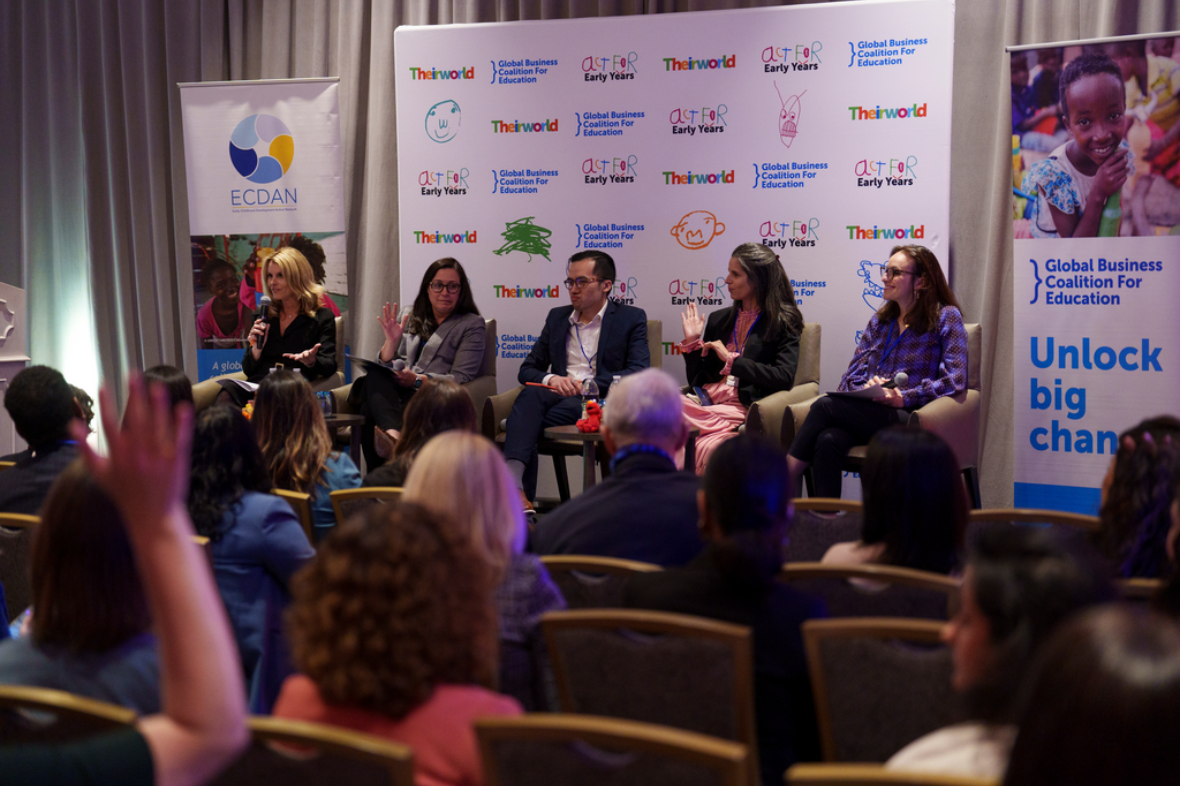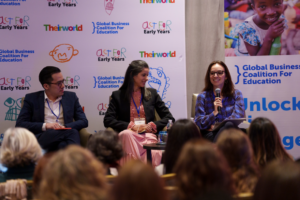GBC-Education calls on business to act urgently for youngest children

News
The Global Business Coalition for Education is urging the private sector to help the youngest learners by showing stronger commitment to working parents.
Through the Act For Early Years campaign, GBC-Education and its partner organization Theirworld are aiming to mobilize $1 billion in new commitments from the public and private sectors over the next three years to support early years care and education.
“We know that investing in women and parents helps the whole community, and has a positive impact on the workplace, with higher worker retention and reduced absenteeism,” said Emily Friedman, Head of Business Impact at GBC-Education.
“We’re encouraging businesses to explore every way of supporting parents in the workplace. Offering childcare benefits, resource groups and flexible work policies will enable parents to provide millions of children with the quality early education and care they need and deserve, while positively impacting companies’ bottom-lines.”
Specifically, GBC-Education is recommending that businesses:
- Contribute towards the $1 billion target by providing childcare benefits, such as stipends for childcare providing day care back-up or childcare credits.
- Become a corporate advocate or champion of our Act For Early Years campaign, and help advocate before world leaders at the UN General Assembly in September.
The call for $1 billion in commitments over the next three years was launched by Gordon Brown, UN Special Envoy for Global Education, at an event on childcare and pre-primary education held at the recent World Bank Spring Meetings.
Co-hosted by the GBC Education, Theirworld, Sesame Workshop and the Early Childhood Development Action Network (ECDAN), the event heard from a private sector panel which explored ways corporations can help plug the gap in childcare provision.

We believe our people are the most important thing. Companies that offer leading benefits tend to experience at least 25% less [staff] turnover compared to companies that don't.
Fred Tan, Head of Global Social Impact at Hewlett Packard Enterprise
He added that parents who feel supported are more engaged at work, and “more engaged teams on average tend to be 25% more profitable”.
“But more than that, it’s the right thing to do. It really miffs me when sometimes we talk about the business value of doing the right thing, because we just need to do it.”
Marissa Comart, Assistant Legal Counsel at Etsy, the online marketplace for vintage and crafted products, said: “We have a higher retention rate for parents than non-parents. Employees across the board say Etsy’s support of parents in the workplace is what keeps them in the company.”

Fred (Wen Jie) Tan of Hewlett-Packard Enterprise; Mariana Luz of Maria Vidigal Foundation; and Marissa Comart of Etsy. Act for Early Years event in Washington DC and hosted by Theirworld, GBC-Education, Sesame Workshop and ECDAN.
As the mother of two young children, she said she wouldn’t have been able to stay in the workplace without the support offered by Etsy, which includes a mentorship programme for parents returning to work.
Both companies offer paid parental leave of six months, while HPE allows parents to work part-time for an additional three years.
GBC-Education is now building on the momentum created by the event to galvanize private sector engagement in the early years. The Act For Early Years campaign was launched in 2023 in response to a global crisis in early years, with costs spiralling and child care places in short supply.
The years between birth and age five are when 90% of a child’s brain development takes place. However, only 1.4% of total spending on international education aid went to the early years in 2022 – far below an internationally agreed target of 10%.
More than half of the world’s children – 350 million – do not have access to the childcare they need, according to the World Bank. About half of pre-school aged children are not enrolled in any form of early education.
